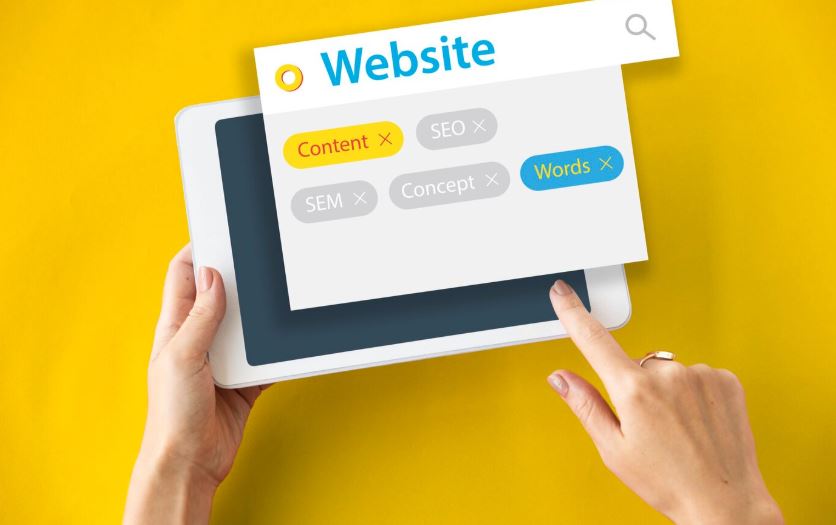Building a website in 2025 is no longer just about going online; it’s about choosing the right platform to power your brand, business, or personal project. And the question many people still ask is straightforward: Is WordPress still a good choice for building a website today?
With more than 43% of all websites powered by WordPress, its dominance is clear. But popularity alone doesn’t mean it’s the perfect choice for everyone. Is it truly the best option for bloggers, businesses, and e-commerce stores, or are newer drag-and-drop builders starting to take over the market?
In this article, we’ll uncover the full picture. From WordPress’s biggest strengths and hidden challenges to its role in SEO, security, and scalability, you’ll get the insights you need to decide. Keep reading until the end; the answer might surprise you.

What kinds of websites is WordPress good at building?
One of the most significant advantages of WordPress is its sheer versatility. It began as a simple blogging platform in 2003 but has since evolved into a robust content management system (CMS) capable of creating almost any type of website imaginable. Here are just a few examples of what you can build with WordPress:- Blogs and Personal Websites: At its core, WordPress remains one of the best platforms for bloggers and individuals looking to create a personal space online.
- Business and Corporate Websites: From small local businesses to large corporations, WordPress provides the tools to build a professional and highly functional online presence.
- E-commerce Stores: With powerful plugins like WooCommerce, "Is WordPress good for e-commerce?" is an easily answered question. It allows you to sell everything from physical products to digital downloads and services, complete with various payment gateways and shipping options.
- Membership Sites: You can create exclusive content and build a community by launching a membership website.
- Online Courses: The platform supports learning management system (LMS) plugins that enable you to create, market, and sell online courses.
- Portfolios and Galleries: Artists, photographers, and designers can showcase their work beautifully using a variety of themes and plugins designed for portfolios.
- Non-Profit and Community Websites: WordPress is an excellent tool for non-profits to raise awareness, collect donations, and engage with their supporters.
Key Features That Make WordPress Popular
So, what makes WordPress the go-to choice for millions? Its popularity isn't accidental. It's built on a foundation of powerful features that offer users an unparalleled level of control and flexibility.- Extensive Customization: The ability to customize is perhaps WordPress's greatest strength. With thousands of free and premium themes, you can change your site's entire look and feel with a few clicks. Beyond aesthetics, a massive library of over 59,000 plugins allows you to add virtually any functionality you can think of, from contact forms and SEO tools to social media integration and advanced analytics.
- User-Friendly Interface: Despite its power, WordPress is remarkably beginner-friendly. Its intuitive dashboard allows you to easily create pages, write blog posts, and manage your content without needing to write a single line of code. This accessibility empowers users of all technical skill levels.
- SEO-Friendly Foundation: WordPress is built with search engine optimization in mind. Its code is clean and structured, which search engines like Google appreciate. Furthermore, you can use powerful SEO plugins like Yoast SEO to optimize your titles, meta descriptions, and other on-page elements to improve your rankings and attract more organic traffic.
- Scalability: Whether you're starting a small personal blog or a large-scale e-commerce store, WordPress can grow with you. It's a highly scalable platform capable of handling significant traffic and content volumes without compromising performance. This makes it a sustainable choice for the long term.
- Open-Source Freedom: WordPress is free, open-source software. This means you have the freedom to use it for any purpose and modify it to your heart's content. You own your website and all its data, giving you complete control, unlike hosted platforms that can suspend your site for various reasons. This is a key reason why it remains the most popular CMS for websites.

Security and Maintenance Considerations
While WordPress is a secure platform, its popularity also makes it a prime target for hackers. Therefore, understanding and committing to regular security and maintenance is not just recommended; it's essential for any website owner. Security: The core WordPress software is regularly updated by a dedicated security team to patch vulnerabilities. However, the biggest security risks often come from outdated themes, plugins, or weak user practices. Here are some key security measures:- Regular Updates: Consistently update your WordPress core, themes, and plugins. These updates often contain critical security patches.
- Strong Passwords: Enforce strong, unique passwords for all user accounts, especially administrators.
- Security Plugins: Install a reputable security plugin (like Wordfence or Sucuri) to monitor for malware, block malicious login attempts, and add a firewall.
- Secure Hosting: Choose a web host that takes security seriously and offers features like regular backups and malware scanning.
- Regular Backups: Always have a recent backup of your website. If something goes wrong, you can quickly restore it.
- Performance Optimization: Over time, your site can slow down. Regularly optimize your database, compress images, and use caching plugins to keep your page speeds fast.
- Spam Management: Implement tools to manage comment spam to keep your site clean and professional.
Pros and Cons of Using WordPress as a Website Builder
To give you a clear picture, let's break down the advantages and disadvantages of using WordPress. Pros:- Complete Control and Flexibility: You have full ownership and can customize every aspect of your site.
- Massive Community Support: With millions of users worldwide, there's a vast online community and an abundance of tutorials, forums, and resources to help you with any issue.
- Cost-Effective: The WordPress software itself is free. Your main costs are hosting and a domain name, making it a very affordable way to get online. While premium themes and plugins are available, many excellent free options exist.
- Unmatched Functionality: The extensive plugin library means you can add almost any feature without needing a developer.
- Excellent for SEO: WordPress provides a solid foundation for building a search-engine-friendly website.
- Responsibility for Security and Maintenance: You are responsible for keeping your site updated, backed up, and secure. This can be a learning curve for beginners.
- Plugin Overload Can Cause Issues: While plugins are great, having too many or using poorly coded ones can slow down your site and create security vulnerabilities or conflicts.
- Steeper Learning Curve Than All-in-One Builders: Compared to drag-and-drop builders like Wix or Squarespace, WordPress can have a steeper learning curve, especially when you want to dive into deeper customization.
- No Dedicated Customer Support: As open-source software, there isn't a central support team to call. Support comes from community forums or your hosting provider.

Is WordPress Worth It?
For the vast majority of users, the answer is a resounding yes. The benefits of flexibility, control, and scalability far outweigh the responsibilities of maintenance and security for most projects. While all-in-one builders might seem easier initially, they often come with limitations on customization, functionality, and cost as your site grows. The key is to understand what you're signing up for. WordPress empowers you to build a truly unique and powerful website, but it requires a commitment to ongoing upkeep. If you are willing to learn the basics of maintenance or partner with a service that can handle it for you, the potential of what you can create is nearly limitless.Final Verdict: Is WordPress the Right Choice for You?
So, how do you decide if WordPress is good for you? Ask yourself these questions:- Do I want full control over my website's design and functionality? If yes, WordPress is an excellent choice.
- Am I planning for my website to grow in the future? WordPress's scalability makes it ideal for long-term growth.
- Am I willing to handle or learn about website maintenance and security? This is a crucial requirement for running a WordPress site.
- Is my budget a primary concern? WordPress is one of the most cost-effective ways to launch a professional website.
- Is WordPress really free? Yes, the core WordPress software is 100% free and open-source. However, to get your website online, you will need to pay for a domain name (your website's address) and web hosting (the server where your website's files are stored). There can also be optional costs for premium themes or plugins if you choose to use them.
- Do I need to know how to code to use WordPress? No, you do not need to be a coder to use WordPress. You can build and manage a beautiful, functional website using the intuitive dashboard, themes, and plugins without ever touching a line of code. However, knowing how to code can open up even more advanced customization possibilities.
- Is WordPress good for e-commerce? Yes, WordPress is an excellent platform for e-commerce, primarily through the use of the WooCommerce plugin. WooCommerce is a powerful, flexible, and free plugin that transforms your WordPress site into a fully functional online store, used by millions of businesses worldwide.
- How does WordPress compare to website builders like Wix or Shopify? The main difference is control and flexibility versus all-in-one convenience. WordPress (self-hosted) gives you complete control and ownership over every aspect of your site. Platforms like Wix are easier for absolute beginners but have limitations on customization. Shopify is a fantastic dedicated e-commerce platform, but WordPress with WooCommerce can be more flexible and cost-effective for selling a wider variety of products and services.
- How often should I update my WordPress site? You should check for updates regularly, at least once a week. It's crucial to apply security updates for the WordPress core, themes, and plugins as soon as they are released to keep your site protected from vulnerabilities.




